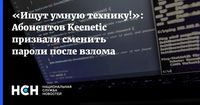A massive data leak involving Keenetic routers has jeopardized the personal information of around one million users, particularly in Russia, sparking substantial cybersecurity concerns. This incident underscores the significance of safeguarding digital assets in an era increasingly reliant on internet-connected devices.
Reports indicate that approximately 944,000 Russian users were affected, while about 48,000 users from Turkey and 39,000 English-speaking users also faced implications. The critical information leaked includes sensitive data such as logins and passwords, detailed network configurations, system logs, and information regarding connected devices. This extensive data breach not only puts users' personal information at risk but also heightens concerns about the potential misuse of their home networks.
The breach stems from a vulnerability found in Keenetic's mobile application, which hackers exploited back on March 15, 2023. However, the details of the breach were only communicated to the public on March 24, 2025, leading to questions about the transparency and security accountability of Keenetic Limited. "The data leak was not related to targeted malicious activity," a company statement noted whilst acknowledging unauthorized access to client information.
As security vulnerabilities were identified and addressed by Keenetic in 2023, a significant portion of the data was unfortunately copied by hackers before the breach was closed. The included data revealed sensitive user inputs, allowing hackers the potential to use these credentials for malicious activities. According to cybersecurity specialists, users can be susceptible to having their networks infiltrated, leading to further exploits such as traffic interception and fraud.
Experts are urging all Keenetic router owners to take immediate security measures. Recommendations include changing administrative passwords, updating Wi-Fi passwords to more complex variants, and reviewing security settings to confirm that remote access to the router is disabled. The experts emphasize that even if there are assertions regarding low risks of fraud, users should err on the side of caution by securing other connected devices as well.
Sergei Vakulin, a noted cybersecurity expert, pointed out, "If the company says that there was a DDoS attack, data leaks are impossible." The context suggests that users should thoroughly manage their online security, as DDoS attacks, often used to disable services, typically do not lead to data breaches. This relentless reminder of wellbeing in internet safety highlights the need for proactive measures in confronting potential invasions.
In light of these incidents, Keenetic is under scrutiny for its lack of immediate communication concerning the very real threat posed to user safety and data integrity. A breach notification that surfaced nearly two years later ignites concerns about whether adequate steps were taken to ensure user data remained private and secure. Keenetic claims to have minimized risk by contracting with external cybersecurity experts to analyze vulnerabilities and recommend immediate practices to safeguard user information.
User feedback and experiences have varied widely in response to the breach. Many exclaim the need for better communication channels from Keenetic and for tech companies in general to maintain transparency with client issues. It has become increasingly clear that cybersecurity needs to be considered a fundamental aspect of product and service development.
Ultimately, this incident highlights the pressing need for home network security measures. In an age where smart devices dominate, the security infrastructure must evolve to confront emerging threats. As we embrace innovation, safeguarding personal information and digital spaces is essential, with experts urging consumers to remain vigilant against the backdrop of sophisticated cyber threats.
For now, Keenetic users are advised to take all necessary steps to protect their networks and data. As developments unfold, staying informed regarding updates on this situation through credible sources remains imperative. Regularly revisiting security practices can foster a foundation of trust and safety within our increasingly connected digital lives.







